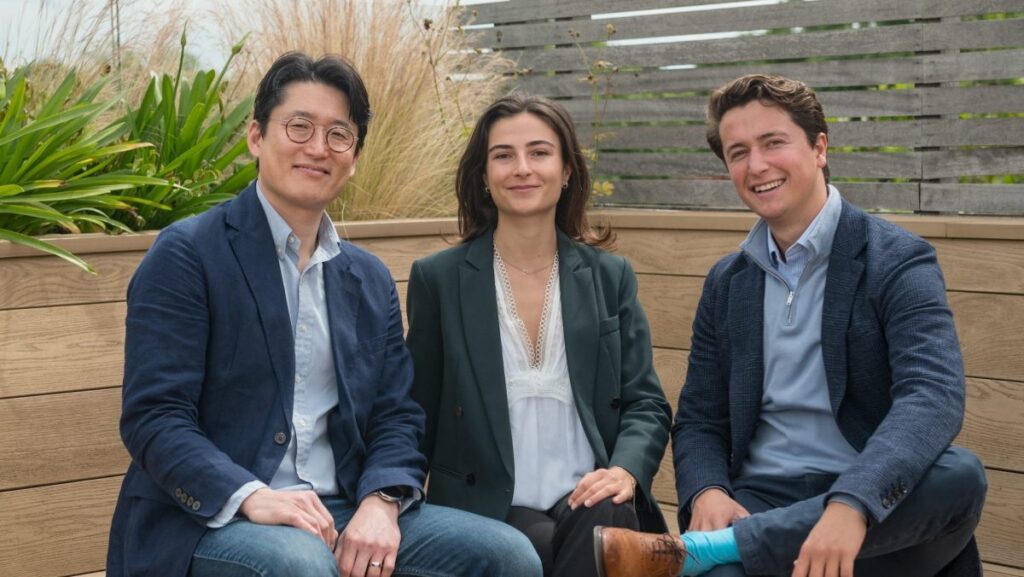Artificial intelligence (AI) is emerging as a revolutionary force in various sectors, with drug discovery standing out as a leading domain poised for transformation. By leveraging extensive biological datasets, AI offers researchers the capacity to foresee interactions between chemical compounds and biological targets, thereby expediting the identification of viable drug candidates.
Amid this AI revolution, CardiaTec, a spinout of Cambridge University, is addressing the pressing issue of cardiovascular disease (CVD). The innovative company has announced it has secured $6.5 million in seed funding to advance its mission.
Cardiovascular diseases remain the leading cause of mortality worldwide, claiming approximately 17.9 million lives annually, as stated by the World Health Organization (WHO). Ischaemic heart disease, a prominent form of CVD, alone accounts for 13% of global fatalities.
Founded in 2021, CardiaTec was established by biotech virtuosos Raphael Peralta (CEO) and Thelma Zablocki (COO), along with their co-founder, Namshik Han (CTO), who serves as a lecturer in AI drug discovery at the University of Cambridge. With a robust background in machine learning and computational biology, Han also leads AI initiatives at the Milner Therapeutics Institute, which actively collaborates with pharmaceutical firms.
“Namshik operates at the intersection of academia and industry, giving us invaluable insights,” stated Peralta in an interview with TechCrunch. “We aim to apply his expertise specifically to the cardiovascular domain.”
CardiaTec is tackling the significant challenge of expensive drug development, which can cost around $2.2 billion on average per candidate. A staggering 90% of candidates fail before reaching the market, according to Deloitte. The company’s goal is to “decode” the biology underlying CVDs to mitigate these costs.
To achieve this, CardiaTec has formed partnerships with 65 hospitals across the U.K. and the U.S., gathering human heart tissue samples essential for their data collection initiatives. This endeavor aims to create what they term the “largest human heart tissue-multi-omics dataset,” which encompasses a wide array of biological information.
“Historically, obtaining human tissue has been a logistical challenge due to consent and ethical issues,” Peralta explained. “Today, hospital infrastructures have evolved, allowing us easier access to these vital tissues for data generation.”
By analyzing both healthy tissue and that impacted by conditions such as plaque buildup leading to heart attacks, CardiaTec can generate critical data for its computational models. These models can synthesize vast amounts of multi-omics data—data types that transcend human analytical capabilities.
“Our approach enables us to investigate not just genetic factors, but also epigenetics, gene expression, and protein functionality within a single framework,” Peralta noted. “This comprehensive analysis ultimately enhances our understanding of disease mechanisms.”
Addressing a Critical Issue
Although AI-assisted drugs have yet to debut in the market, the promising potential has generated considerable excitement in the pharmaceutical sector, leading to a surge in funding for emerging startups. Recent notable examples include Xaira, which emerged with $1 billion in funding, and Sam Altman-backed Formation Bio, which secured $372 million. Closer to home, U.K.-based Healx achieved $47 million to focus on rare diseases.
Venture capital-backed startup Insilico Medicine claimed a historic achievement recently by identifying a new drug candidate for idiopathic pulmonary fibrosis, a rare lung condition. The role of AI was critical not only in designing the drug’s structure but also in pinpointing the target cell functions. Initial animal testing has progressed to Phase II trials in both the U.S. and China, with aspirations of demonstrating effectiveness in human treatment.
AI technologies are being harnessed across diverse therapeutic areas, ranging from novel antibiotics targeting superbugs to treatments for obsessive-compulsive disorder (OCD).
Peralta emphasized one of CardiaTec’s key differentiators: a focused commitment to cardiovascular disease, a sector underserved by active AI-driven companies. According to data from the peer-reviewed journal Nature Reviews Drug Discovery, only 3% of AI-first firms are concentrating on CVD research.
“The bulk of AI applications in drug discovery are channeled toward oncology and neurogenic diseases, with cardiovascular initiatives lagging significantly behind,” he observed. “Addressing cardiovascular disease—acknowledged as the leading global cause of death—is a pressing need that has largely gone unaddressed in the pharmaceutical landscape.”
Earlier, CardiaTec raised $1.8 million in a pre-seed round, and this latest $6.5 million funding positions the company well to expand its data acquisition efforts, validate therapeutic targets in wet lab environments, and grow its eight-member team based in Cambridge. The next critical phase is to begin identifying and testing actual drug candidates, an endeavor that may still be years away in the drug development timeline.
The recent seed funding round was spearheaded by Montage Ventures, with participation from Continuum Health Ventures, Laidlaw Ventures, Apex Ventures, and various angel investors.
Conclusion: CardiaTec’s innovative approach and robust funding signal a promising future in tackling cardiovascular disease through AI-driven research. Their commitment to creating a comprehensive dataset of human heart tissues may lead to groundbreaking therapeutic discoveries, fulfilling an urgent medical need and potentially redefining drug development practices in the cardiovascular space.




